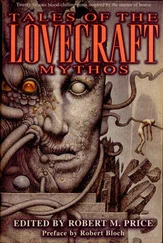Robert Pirsig - Lila. An Inquiry Into Morals
Здесь есть возможность читать онлайн «Robert Pirsig - Lila. An Inquiry Into Morals» весь текст электронной книги совершенно бесплатно (целиком полную версию без сокращений). В некоторых случаях можно слушать аудио, скачать через торрент в формате fb2 и присутствует краткое содержание. Жанр: Современная проза, на английском языке. Описание произведения, (предисловие) а так же отзывы посетителей доступны на портале библиотеки ЛибКат.
- Название:Lila. An Inquiry Into Morals
- Автор:
- Жанр:
- Год:неизвестен
- ISBN:нет данных
- Рейтинг книги:3 / 5. Голосов: 1
-
Избранное:Добавить в избранное
- Отзывы:
-
Ваша оценка:
- 60
- 1
- 2
- 3
- 4
- 5
Lila. An Inquiry Into Morals: краткое содержание, описание и аннотация
Предлагаем к чтению аннотацию, описание, краткое содержание или предисловие (зависит от того, что написал сам автор книги «Lila. An Inquiry Into Morals»). Если вы не нашли необходимую информацию о книге — напишите в комментариях, мы постараемся отыскать её.
Lila. An Inquiry Into Morals — читать онлайн бесплатно полную книгу (весь текст) целиком
Ниже представлен текст книги, разбитый по страницам. Система сохранения места последней прочитанной страницы, позволяет с удобством читать онлайн бесплатно книгу «Lila. An Inquiry Into Morals», без необходимости каждый раз заново искать на чём Вы остановились. Поставьте закладку, и сможете в любой момент перейти на страницу, на которой закончили чтение.
Интервал:
Закладка:
The only difference between causation and value is that the word cause implies absolute certainty whereas the implied meaning of value is one of preference. In classical science it was supposed that the world always works in terms of absolute certainty and that cause is the more appropriate word to describe it. But in modern quantum physics all that is changed. Particles prefer to do what they do. An individual particle is not absolutely committed to one predictable behavior. What appears to be an absolute cause is just a very consistent pattern of preferences. Therefore when you strike cause from the language and substitute value you are not only replacing an empirically meaningless term with a meaningful one; you are using a term that is more appropriate to actual observation.
The next platypus to fall is substance. Like causation, substance is a derived concept, not anything that is directly experienced. No one has ever seen substance and no one ever will. All people ever see is data. It is assumed that what makes the data hang together in consistent patterns is that they inhere in this substance. But as John Locke pointed out in the seventeenth century, if we ask what this substance is, devoid of any properties, we find ourselves thinking of nothing whatsoever. The data of quantum physics indicate that what are called subatomic particles cannot possibly fill the definition of a substance. The properties exist, then disappear, then exist, and then disappear again in little bundles called quanta. These bundles are not continuous in time, yet an essential, defined characteristic of substance is that it is continuous in time. Since the quantum bundles are not substance and since it is a usual scientific assumption that these subatomic particles compose everything there is, then it follows that there is no substance anywhere in the world nor has there ever been. The whole concept is a grand metaphysical illusion. In his first book, Phædrus had railed against the conjuror, Aristotle, who invented the term and started it all.
But if there is no substance, it must be asked, then why isn’t everything chaotic? Why do our experiences act as if they inhere in something? If you pick up a glass of water why don’t the properties of that glass go flying off in different directions? What is it that keeps these properties uniform if it is not something called substance? That is the question that created the concept of substance in the first place.
The answer provided by the Metaphysics of Quality is similar to that given for the causation platypus. Strike out the word substance wherever it appears and substitute the expression stable inorganic pattern of value. Again the difference is linguistic. It doesn’t make a whit of difference in the laboratory which term is used. No dials change their readings. The observed laboratory data are exactly the same.
The greatest benefit of this substitution of value for causation and substance is that it allows an integration of physical science with other areas of experience that have been traditionally considered outside the scope of scientific thought. Phædrus saw that the value which directed subatomic particles is not identical with the value a human being gives to a painting. But he saw that the two are cousins, and that the exact relationship between them can be defined with great precision. Once this definition is complete a huge integration of the humanities and sciences appears in which platypi fall by the hundreds. Thousands.
One of the first to fall, he was happy to note, was the one that got all this started in the first place — the Theory of Anthropology platypus. If science is a study of substances and their relationships, then the field of cultural anthropology is a scientific absurdity. In terms of substance there is no such thing as a culture. It has no mass, no energy. No scientific laboratory instrument has ever been devised that can distinguish a culture from a non-culture.
But if science is a study of stable patterns of value, then cultural anthropology becomes a supremely scientific field. A culture can be defined as a network of social patterns of value. As the Values Project anthropologist Kluckhohn had said, patterns of value are the essence of what an anthropologist studies.
Kluckhohn’s enormous mistake was his attempt to define values. He assumed that a subject-object view of the world would allow such a definition. What was destroying his case was not the accuracy of his observations. What was destroying his case were these substance-oriented metaphysical assumptions of anthropology that he failed to detach from his observations. Once this detachment is made anthropology is out of the metaphysical quicksand and onto hard ground at last.
Phædrus found again and again that a Quality-centered map of the universe provides overwhelming clarity of explanation where all has been fog before. In the arts, which are primarily concerned with value, this was expected. A surprise, however, came in fields that were supposed to have little to do with value. Mathematics, physics, biology, history, law — all of these had value foundations built into them that now came under scrutiny and all sorts of surprising things were revealed.
Once a thief is caught a whole string of crimes is often solved.
9
In any hierarchy of metaphysical classification the most important division is the first one, for this division dominates everything beneath it. If this first division is bad there is no way you can ever build a really good system of classification around it.
In his book Phædrus had tried to save Quality from metaphysics by refusing to define it, by placing it outside the dialectical chess board. Anything that is undefined is outside metaphysics, since metaphysics can only function with defined terms. If you can’t define it you can’t argue about it. He had demonstrated that even though you can’t define Quality you still must agree that it exists, since a world from which value is subtracted becomes unrecognizable.
But he realized that sooner or later he was going to have to stop carping about how bad subject-object metaphysics was and say something positive for a change. Sooner or later he was going to have to come up with a way of dividing Quality that was better than subjects and objects. He would have to do that or get out of metaphysics entirely. It’s all right to condemn somebody else’s bad metaphysics but you can’t replace it with a metaphysics that consists of just one word.
By even using the term Quality he had already violated the nothingness of mystic reality. The use of the term Quality sets up a pile of questions of its own that have nothing to do with mystic reality and walks away leaving them unanswered. Even the name, Quality, was a kind of definition since it tended to associate mystic reality with certain fixed and limited understandings. Already he was in trouble. Was the mystic reality of the universe really more immanent in the higher-priced cuts of meat in the butcher shop? These were Quality meats, weren’t they? Was the butcher using the term incorrectly? Phædrus had no answers… That was the problem this morning too, with Rigel. Phædrus had no answers. If you’re going to talk about Quality at all you have to be ready to answer someone like Rigel. You have to have a ready-made Metaphysics of Quality that you can snap at him like some catechism. Phædrus didn’t have a Catechism of Quality and that’s why he got hit.
Actually the issue before him was not whether there should be a metaphysics of Quality or not. There already is a metaphysics of quality. A subject-object metaphysics is in fact a metaphysics in which the first division of Quality — the first slice of undivided experience — is into subjects and objects. Once you have made that slice, all of human experience is supposed to fit into one of these two boxes. The trouble is, it doesn’t. What he had seen is that there is a metaphysical box that sits above these two boxes, Quality itself. And once he’d seen this he also saw a huge number of ways in which Quality can be divided. Subjects and objects are just one of the ways.
Читать дальшеИнтервал:
Закладка:
Похожие книги на «Lila. An Inquiry Into Morals»
Представляем Вашему вниманию похожие книги на «Lila. An Inquiry Into Morals» списком для выбора. Мы отобрали схожую по названию и смыслу литературу в надежде предоставить читателям больше вариантов отыскать новые, интересные, ещё непрочитанные произведения.
Обсуждение, отзывы о книге «Lila. An Inquiry Into Morals» и просто собственные мнения читателей. Оставьте ваши комментарии, напишите, что Вы думаете о произведении, его смысле или главных героях. Укажите что конкретно понравилось, а что нет, и почему Вы так считаете.











